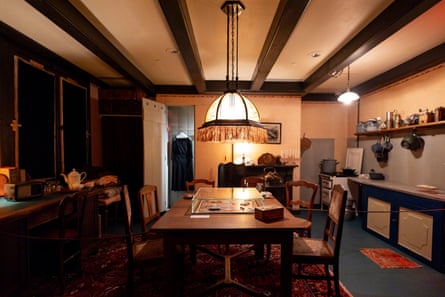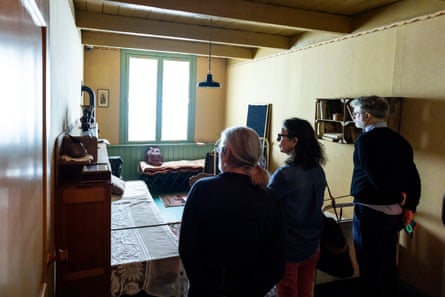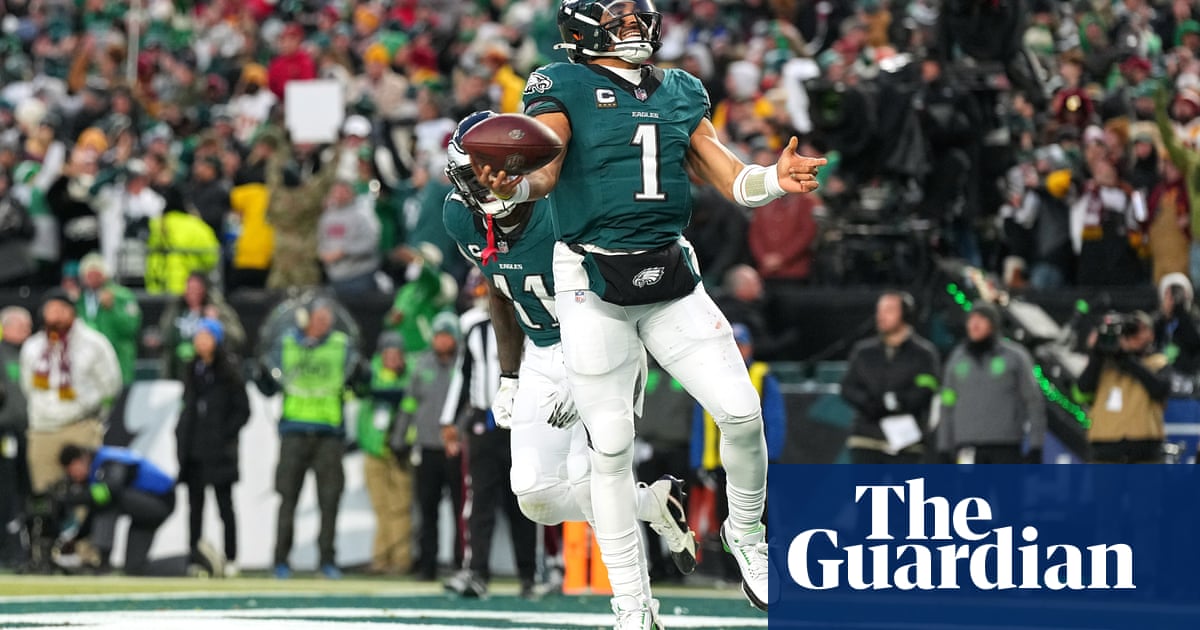
The first-ever full-scale replica of Anne Frank’s attic annex goes on show in New York next week, part of an ongoing effort to maintain awareness of – and combat – antisemitism in the midst of conflict in the Middle East and political tensions in the US.
Eighty years on from Frank’s death, aged 15, in the Bergen-Belsen concentration camp in 1945, the exhibition at the Center for Jewish History in downtown Manhattan aims to introduce new audiences to one of the most famous victims of Adolf Hitler’s “final solution”.
It opens on International Holocaust Remembrance Day, which this year commemorates the 80th anniversary of the liberation of Auschwitz, one of the largest extermination sites in occupied Europe, which Frank had passed through.
The exhibition in New York follows an exhibit last year of artefacts drawn from the 7 October 2023, Hamas-led attack on the Nova music festival and surrounding communities that precipitated a counter-invasion that has killed tens of thousands of Palestinians in Gaza, including many women and children, razed much of the territory and led some groups to accuse Israel of carrying out a genocide.

It includes more than 100 original artifacts related to the Frank family, including a Dutch version of the Monopoly board she played, and a 1947 letter from a New York publisher to her father, Otto Frank, declining to publish her diaries, The Diary of a Young Girl, that has sold more than 35m copies in 70 languages since publication that same year.
Organizers say they have not tried to imitate what is on display at the Anne Frank House in Amsterdam, but an immersion in the home environments and world events that shaped the young woman’s life.
“We need to look for new ways to mediate this story and keep it relevant for the young generation and future generations. The concept and design of this exhibition, we hope, is a start of finding a new way to engage. It’s not like the standard Holocaust exhibition, with text and theoretics, but to make it like a personal journey to touch hearts,” said Tom Brink, head of publications and presentations at the Anne Frank House.
Brink added: “It’s about the past and knowledge of the Holocaust, but also about now and the fight against antisemitism, racism and hate in general.”

A study released on Thursday by the Conference on Jewish Material Claims Against Germany, or Claims Conference, found knowledge of basic facts about the Holocaust is fading.
The survey assessed that across eight countries, including the US and UK, 76% of adults believe something like the Holocaust could happen again; that those aged 18–29 are more likely to believe that the number of Jews killed has been exaggerated; and nearly half (48%) of Americans and a quarter of adults in the UK, France and Romania could not name a concentration camp or ghetto.
Some academics, without wishing to detract from Frank’s experience or her posthumously published diaries, worry that her experience has been universalized to stand for generalized account of human injustice and an idealization of the strength human spirit.
Hannah Pick-Goslar, one of Frank’s best friends from kindergarten to middle school, recounted later that she had caught a glimpse of her friend at Bergen-Belsen. “It wasn’t the same Anne that I had known,” she said. “She was a broken girl. I probably was, too, yet it was terrible.”
“One aspect of her story is that because it’s devoid of overt religious tones – her family were not observant Jews – and also because it lacks the particulars of what happened to Jews in the camps and ghettos, she has become a universal figure, almost stripped of the Jewish elements of her life,” said Dr Lauren Strauss, director of undergraduate studies for the Jewish Studies Program at the American University in Washington DC.
“Anne has been adopted and adapted by every type of popular culture. She has become all-purpose. She is used to represent violations of human rights even more than she represents antisemitism specifically.”
The exhibition catalog acknowledges observations that Anne’s “youthful optimism” was appropriated in ways that minimized the meaning of this watershed event but reasons that “the problem is not whether Anne Frank was the right one to represent the victims of the Holocaust but that no single person ever could”.
The exhibition arrives at a particular moment in which antisemitism – as well as the implications of certain Nazi symbols – is being debated in the US.
after newsletter promotion
The Utah-based tech startup SchoolAI is under scrutiny for using artificial intelligence to generate a simulation of Anne Frank that the historian Henrik Schönemann said avoided blaming her death on the Nazis. He called the experiment “a kind of grave-robbing” that “violates every premise of Holocaust-education”.
Harvard University, one of many universities that experienced pro-Palestinian protests last year, settled two lawsuits accusing the school of failing to protect Jewish students from antisemitic bullying and harassment on campus.
Harvard agreed to strengthen its policies against antisemitism on campus and said it would adopt a revised definition of antisemitism, including holding Israel to a “double standard” or describing the creation of Israel as a “racist endeavor”.
But at the same time that antisemitism – along with others forms of discrimination – is on the rise in the US, it also comes as some organizations and prominent pro-Israeli figures have been accused of conflating antisemitism with legitimate criticism of the Israeli government, in particular over its policies carrying out the war on Gaza.
Some contend that discussion about Gaza – and expressions of support for Palestinian rights – has been stifled by blanket accusations that such statements are antisemitic.
One of the most visible skirmishes came when Elon Musk repeatedly gave an apparent fascist-style salute at a Donald Trump inauguration rally and prompted a flood of shock and outrage. Musk, who is strongly pro-Israel, denied harmful intent, and was supported by the Jewish civil rights body the Anti-Defamation League who said he should be given “the benefit of the doubt”.
That stance in itself prompted a backlash against the ADL. “Just to be clear, you are defending a Heil Hitler salute that was performed and repeated for emphasis and clarity,” said the leftist Democratic congresswoman Alexandria Ocasio-Cortez.
Musk then taunted his accusers with Nazi puns. “Don’t say Hess to Nazi accusations! Some people will Goebbels anything down! Stop Gőring your enemies,” Musk wrote on X. “His pronouns would’ve been He/Himmler! Bet you did nazi that coming,” he added with a laughing emoji.
That was enough to finally raise the hackles of ADL’s chief executive, Jonathan Greenblatt: “We’ve said it hundreds of times before and we will say it again: the Holocaust was a singularly evil event, and it is inappropriate and offensive to make light of it,” he posted on X. “@elonmusk, the Holocaust is not a joke.”










 English (US)
English (US)